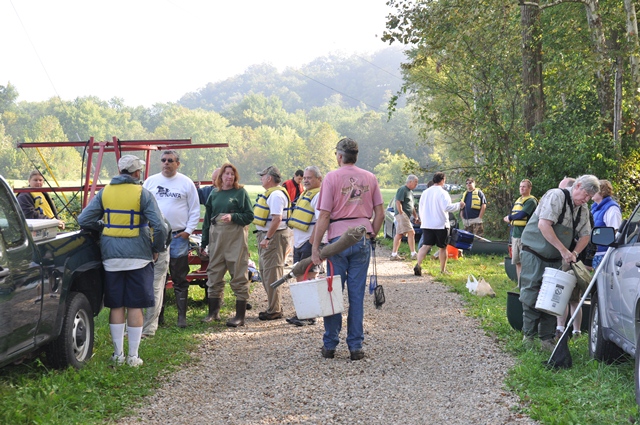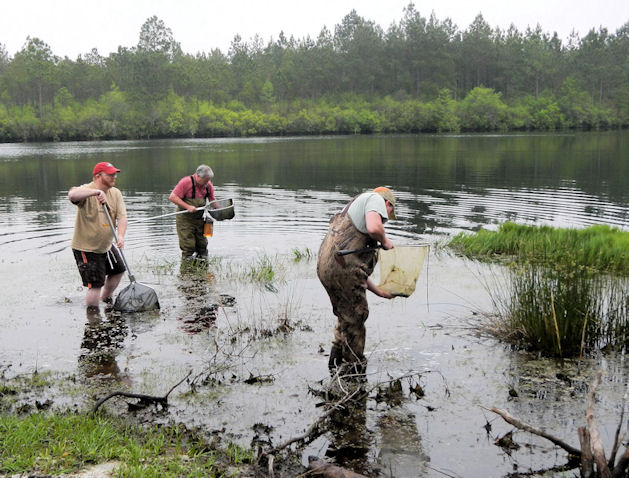
Explore
Collecting is a great reason to explore your local waterways and go where places some people might not venture.

Enjoyment
You can enjoy being outdoors by yourself or with others and see what your local streams have to offer.

Study
With responsible collecting you may find a fish unfamiliar to you and learn more about it and it's habitat.
NANFA Code Of Ethics
NANFA Members who collect native fishes from the wild and maintain them in private aquaria are encouraged to comply with the following Code of Ethics:
- It is the responsibility of NANFA members to acquaint themselves with, and abide by, the collecting, fishing and fish transfer regulations of each Country, State or Province in which they collect, transfer, or ship fish.
- Collecting must be done in an environmentally sound and responsible manner, which includes, but is not limited to:
- a) not removing numbers of fishes beyond that which one requires or is capable of sustaining;
- b) taking all reasonable actions to prevent negative impacts on the habitat in which one collects;
- c) respecting private property rights;
- d) complying with any law-enforcement, natural-resource, or other conservation officer or agent encountered in the field.
- NANFA members who enjoy collecting and maintaining fishes do so of their own accord. Except for specific programs funded and/or sponsored by the Association, NANFA does not sanction any specific collection and/or captive maintenance of native fishes.
- Not all native fishes are suitable for aquaria, and some species may test the skills of even the most experienced aquarist. Therefore, members are encouraged to research the biology and captive requirements of each species before an attempt is made to remove them from the wild.
- Fishes or other aquatic organisms must not be relocated or introduced into any outdoor bodies of water, even to places where they were originally collected (except catch and immediate release), including specimens raised in private aquaria, without permission from the appropriate governing agency. Members must realize that there are complicated and often unknown ecological processes at work in aquatic systems which may make fish introductions detrimental to the system. Potential problems from such introductions include displacement of native species, spread of disease, and the loss of genetic diversity via hybridization.
- All reasonable attempts should be made to maintain fishes with the utmost regard for their safety and health, which includes, but is not limited to: maintaining sufficient water quality; providing water chemistry, temperature, oxygen levels and foods appropriate for each particular species; species compatibility; and the safe and humane transport of fishes from the wild to the aquarium. Sick or infirm specimens should be euthanized in a humane manner and disposed of properly.
Safety Tips
On most collecting or fish watching outings you will be in hard to locate places. Be sure to have a contact know where you will be and when you plan on returning. That way if something unexpected happens they will have an idea where to look. Especially those who venture off on there own.
Since you will be in the water or around water pay be sure to note the weather conditions. When you are wet it is easier to become hypothermic. Also in the area can have adverse effects on stream conditions even if it isn't raining in the area you going to.
If you are some place new it is good practice to test the depth of the water before stepping in or moving forward. This is especially true in murky water where you cannot see the bottom.
Scientific Collecting
Fish are also collected for scientific research. This can include collecting live species for breeding programs, euthanizing specimens for genetic research, and much more.





